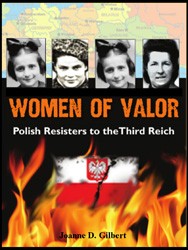Contrary to popular belief, there was a significant amount of Jewish resistance during the Holocaust and it did not begin and end with the Warsaw Ghetto uprising in 1943. Instead, it spanned the entire war, took many forms and belies the myth that Jews were passive and “perfect” victims. Matthew Brzezinski’s Isaac’s Army is a riveting account of the Jewish resistance in wartime Poland. Written with the skill of a seasoned journalist and the pen and eye of a gifted writer, the book reads like a novel, rich in detail and character development. He provides the kind of sweeping narrative and history that this important subject deserves.
The book follows the lives and exploits of a small group of Jewish resisters from their earliest acts of defiance in 1939 to the underground exodus to Palestine in 1946. It centers around Isaac Zuckerman, the twenty-four-year-old charismatic resistance leader who slips into the Warsaw Ghetto to forge an underground movement. Aided by four others — eighteen-year-old Mark Edelman, a commander in the Jewish Fighting Organization (JFO); Zivia Lubetkin, the highest-ranking woman in the JFO and eventually Isaac’s wife; Simha Ratheiser, Isaac’s bodyguard and lead courier, and Baruch Spiegel, a quiet and resilient foot soldier in the JFO — Zuckerman created an effective resistance presence that was able to navigate through the uprising in May 1943, the liquidation and the arrival of the Red Army in the spring of 1944. They sent couriers around Poland disseminating information; ran covert printing presses and illegal schools; slowly built up a cache of weapons; robbed banks and executed collaborators; fought in the Ghetto uprising; escaped through the sewers; participated in some of the fiercest battles of the general Uprising, and launched a human smuggling operation to get Jews to Palestine.
Much of this history is known in broad strokes, but Brzezinski provides rich detail, context, and framework that creates a fuller picture. People’s stories were rendered from the first day of the war to the last, and in some cases beyond. That gives the reader insight into who these people were, their motivations and how they evolved into heroic figures. Brzezinski interviewed most of the main characters of the book who were still living in Poland, Israel, and Canada. He also explored the different forms of resistance: collective and individual, armed and spiritual, conscious and subconscious. From the moment the extermination policy was launched, any steps taken by Jews to hamper the Nazis’ efforts to eradicate them was resistance — bribing officials, paying people to hide them, fleeing to the forests, stealing food — were acts of defiance that required perseverance, courage, and planning.
Brzezinski also places the resistance in a broader historical context, recognizing that Jews were directly affected by the larger events around them: by the complicated history of Polish-Jewish relations; by the anti-Semitism pervasive in Polish society; by the shifting alliances within the factions of the Polish resistance; by decisions made in London and Washington, and by the cynical agenda of the invading Soviet army and polity.
This is a remarkable and compelling book that is hard to put down and that offers a fresh and humanized take on the Jewish resistance in Poland.




